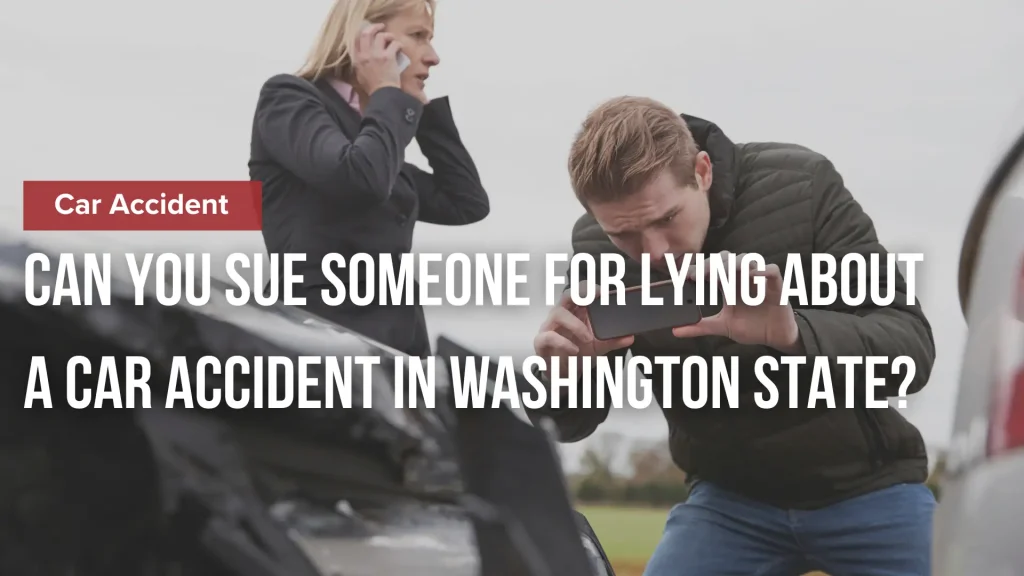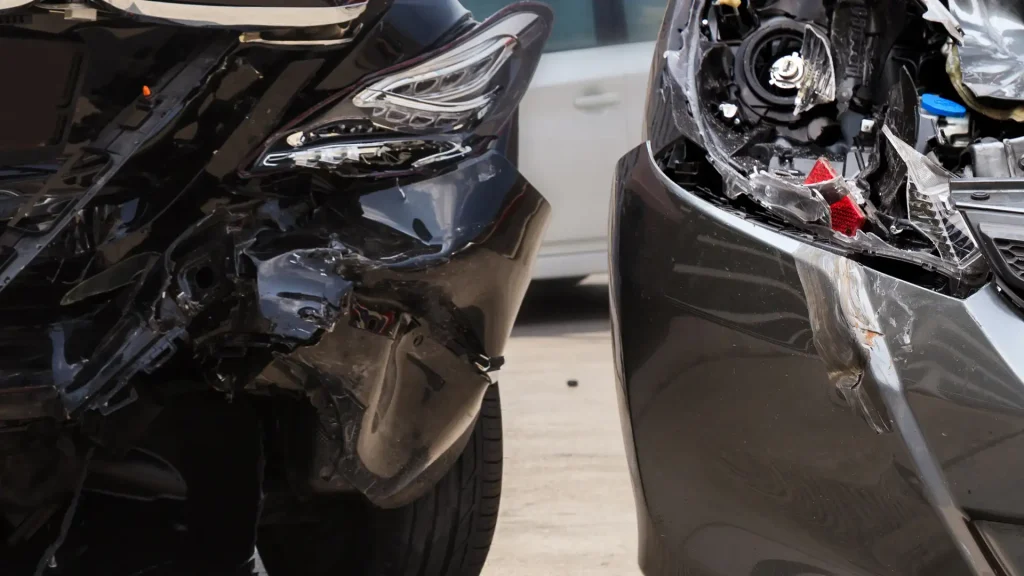
Car accidents can be stressful and complicated, mainly when someone lies about the circumstances. Whether it’s a driver, witness, or even an insurance company representative, false statements can impact your claim, reputation, and financial stability. But can you sue someone for lying about a car accident in Washington State? The short answer is yes, under certain conditions.
Empowerment Through Understanding the Role of Lies in Car Accident Cases
Falsehoods in a car accident can take various forms, each with its own set of consequences. Any of these can complicate the claims process and lead to significant repercussions for all parties involved:
- Car Accident Witness Lying – Witnesses can sometimes exaggerate or fabricate details, which may shift fault unfairly.
- Someone Hit My Car and Is Denying It – A driver who refuses to admit fault can delay or derail your claim.
- At-Fault Driver Lied to Insurance – Providing false information to insurance companies can lead to denied claims or reduced payouts.
- Wrongly Accused of a Car Accident – If you’ve been falsely blamed for causing a collision, defending your version of events is critical.
What Are the Legal Repercussions for Lying About a Car Accident?
Lying about a car accident isn’t just unethical; it can also have serious legal consequences. Washington State’s laws provide avenues for addressing false statements, whether they occur during the claims process or in court. These consequences can range from insurance fraud to perjury, each carrying its own set of penalties.
Insurance Fraud
Providing false information to an insurance company constitutes insurance fraud under RCW 48.30.210. This law prohibits making false or misleading statements with the intent of deceiving. If someone lies to an insurer about the details of a car accident, they could face criminal charges, including fines and imprisonment.
Perjury
If a person lies under oath, such as in a deposition or courtroom testimony, they could be charged with perjury under Washington law. Perjury is a serious offense with significant penalties, including jail time.
Defamation
If false statements about the accident harm your reputation or cause financial loss, you may have grounds to file a defamation lawsuit. This is particularly relevant if you’ve been wrongly accused of causing the accident.
How to Address False Statements in Car Accident Cases
If someone’s lies have impacted your car accident case, you have several options for recourse.
Strengthen Your Evidence
Documentation is crucial in car accident cases, especially when false statements are involved. Be sure to gather:
- Police Reports – A police report provides an official account of the incident and can serve as key evidence.
- Photographs and Videos – Visual evidence of the scene, damage, and injuries in the car accident can help establish the truth.
- Witness Statements – Collect statements from credible witnesses who support your version of events.
- Dashcam Footage – This can provide irrefutable proof of what occurred.
Work with Personal Injury Lawyers
An experienced Washington State car accident lawyer can help you manage the details of a car accident case involving lies. They can:
- Investigate the incident thoroughly
- Obtain and review evidence
- Communicate with insurance companies on your behalf
- Represent you in court if necessary
File a Lawsuit
In Washington State, you may sue someone for lying about a car accident if their falsehoods caused financial harm or personal injury. Potential legal actions include:
- Fraud Claims – If someone intentionally lied to manipulate the outcome of your case, you may pursue a fraud claim.
- Defamation Lawsuits – A defamation suit may be appropriate if lies have damaged your reputation.
- Personal Injury Claims – You can seek compensation for medical bills, lost wages, and pain and suffering if you’ve been injured due to someone else’s negligence.
Fault and Insurance in Washington State
Washington is a “fault” insurance state, meaning the at-fault driver’s insurance is responsible for covering damages. When lies distort the truth, determining fault becomes more challenging but not impossible.
Proving Fault
To establish fault, your lawyer will use evidence such as:
- Police reports
- Witness statements
- Physical evidence from the scene
- Expert testimony (e.g., accident reconstruction specialists)
Dealing with Insurance Companies
Insurance companies often rely on the information provided by drivers and witnesses to determine fault. If an at-fault driver lied to the insurance company, your lawyer can challenge their version of events using the evidence you’ve gathered.
Steps to Take If You’ve Been Affected by Lies
 If you believe someone is lying about a car accident, take the following steps to protect yourself:
If you believe someone is lying about a car accident, take the following steps to protect yourself:
- Report the Accident – File a accident report immediately to create an official record.
- Gather Evidence – Collect as much evidence as possible, including photos, videos, and witness contact information.
- Consult a Lawyer – A personal injury lawyer can provide a free consultation to assess your case and advise you on the next steps.
- Communicate Carefully – Avoid discussing the accident with the other party’s insurance company without legal representation.
- Document Everything – Keep a detailed record of all communications, medical bills, and other relevant documents.
When to Seek Legal Help
If someone’s lies about a car accident jeopardize your ability to recover compensation or defend your reputation, it’s time to consult a lawyer. Personal injury lawyers in Washington State have experience handling cases involving false statements, insurance disputes, and personal injuries.
Why Choose Tamaki Law?
Your choice of an attorney after a car accident can affect the outcome of your claim, especially when you have to fight back against someone else’s lies. With years of experience advocating for car accident victims, Tamaki Law can:
- Investigate your case thoroughly
- Challenge false statements effectively
- Negotiate with insurance companies to secure fair compensation
- Represent you in court if necessary
Dealing with falsehoods in the aftermath of a car accident can be frustrating and overwhelming. However, Washington State’s laws provide avenues for seeking justice and holding dishonest parties accountable. Whether you’ve been wrongly accused, faced an at-fault driver who lied to insurance, or encountered a car accident witness lying, the team at Tamaki Law is here to help. We offer a free consultation to discuss your case and determine the best action. Don’t let lies derail your car accident claim – contact us at (800) 801-9564.
Related Posts
Rental Car Cost Coverage After An Accident In Washington Explained
